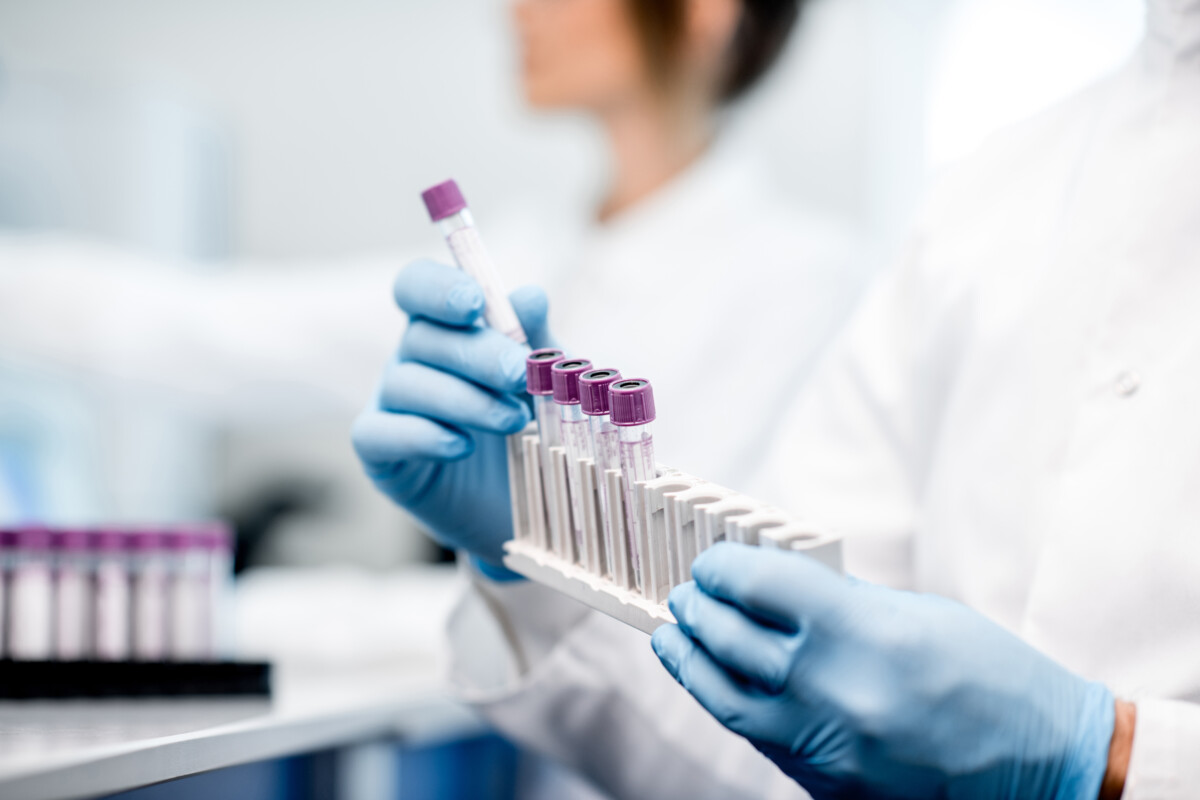If You “Value Being Valued”, Consider a Career in the RMH Lab

To the general public, a hospital lab is one of the most unfamiliar places in healthcare. Patients send their blood there, but they never actually go there in person. This may be one of the reasons why there is such a shortage of Clinical Lab Scientists (CLS). It’s hard to imagine yourself working in an environment that you’ve never seen, no matter how much you may love science and technology.
People enter the field of Lab Science from many different directions and incorporate it into their career plan in many different ways. Some people come to Rush Memorial Hospital with a BS in Clinical Lab Science or a two-year degree in Laboratory Technology. Others have degrees in biology or chemistry and use extra on-the-job training to prepare them for lab work.
A lot of people who work in a lab begin their education knowing what they want to do. Others, however, start out in fields such as phlebotomy, pharmacy, or even billing. When they realize that lab work is what they want to do, they study lab sciences so they can make the switch.
In some cases, people start out in the lab and then realize that they want to be more “hands-on” with patients. They may go on to become a physician assistant, nurse practitioner or doctor.
Kim Franklin, Lab Supervisor at RMH, decided to become a Medical Lab Scientist based on the recommendation of a high school teacher, who helped her get a scholarship for lab studies. Since coming to RMH, Kim has learned to appreciate working in a small hospital. She says, “In a big hospital you may only work in one specialized section of the lab. In a small hospital, you get to do everything.”
RMH Laboratory Director Amanda Scheiderer decided to get an education in lab sciences after working as a phlebotomist (someone who draws blood from patients) 15 years ago. Eight years later she became the director of the RMH Lab. She really appreciates the RMH culture. When asked why she decided to work in a rural hospital, she said, “I value being valued, and I appreciate working in a less stressful, more peaceful atmosphere.”
This is not to say that lab work is without its challenges. If lab results aren’t accurate, healthcare providers can’t provide a proper diagnosis or treatment. They won’t know what medications and dosages to prescribe. They won’t be able to tell when their patients are getting better or worse. Lab results have the potential to make the difference between life and death. For this reason, lab results have to be completely trustworthy. This means that lab technicians have to be completely trustworthy.
Medical labs have to be meticulously clean and organized. Lab machines have to be consistently and accurately calibrated. Lab scientists and technicians have to be good at multitasking, extremely detail-oriented, and able to work quickly under pressure. They have to know what they’re doing and why they’re doing it so that they get “it” right every time.
When asked what characteristics help someone succeed at lab work, Amanda said, “In a rural hospital, you work with a relatively small, close, team. You need to be able to trust your fellow team members. You need to be very meticulous about following precise procedures. You have to be comfortable working alone, as well as working in a group.”
If lab work sounds like something that would fit into your career plan, visit Job Search (healthcaresource.com) , and reach out to the RMH team.
